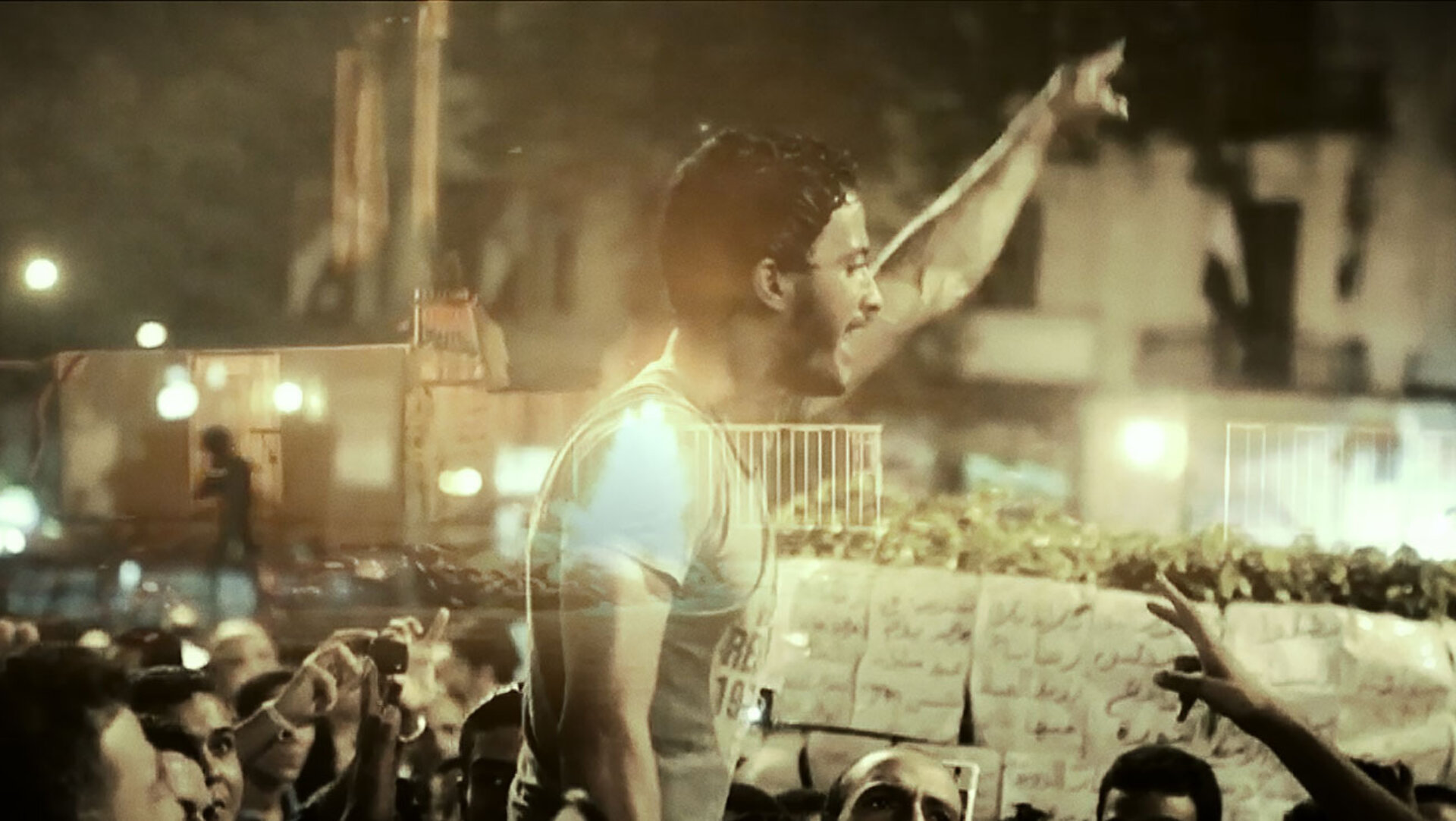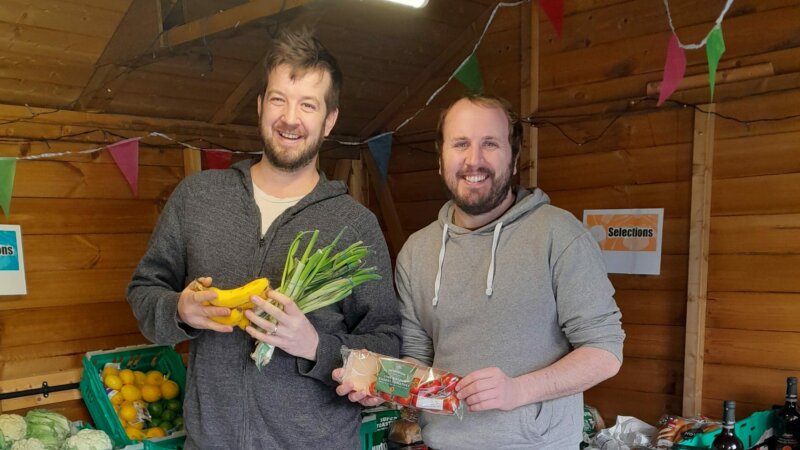Age of Consequences: Climate Film Premiering at Doc/Fest 2016

Jared P Scott has been making hard-hitting films on climate change for a while now. The critically-acclaimed Disruption (2014) was ranked as the number one film of all time for social change by Films for Action, and followed 2013’s Do The Math, a documentary based on the numbers that underpin the climate crisis.
His latest effort, The Age of Consequences, will have its international premiere at Sheffield Doc/Fest on Saturday 11 June, with a talk from Jared about the ideas behind the film the following day on Tudor Square, alongside climate expert and poet Sam Illingworth and creative chemist Prof Tony Ryan.
This newest project marks something of a departure from the previous work of Jared's company, PF Pictures, narrowing in on how climate change affects national security. We spoke to him to find out about the making of the film and how he believes climate change can be tackled.
How did The Age of Consequences come about and what were the inspirations behind the project?
There's something called the Spectrum of Allies. It's basically a pie chart that shows your active allies, your passive allies, your neutral, your passive opponents and then your active opponents. Basically, you're supposed to leave your active opponents alone, but you try to get everyone else to move one pie chart slice to the left.
I truly believe in popular mobilisation. With those previous films, we really tried to activate the core group - those active allies - and remind them to stay off the couch. That was crucial. We were able to help galvanise the largest climate march in our history. Here in New York and around the world, with solidarity marches, we were able to help spark the divestment movement.
I want to keep making climate change films, but we set out to make this film for people who weren't self-identified environmentalists, that weren't people in that active allies pie slice. We were hoping to target more neutral bystanders - people who know this is going on, but it's still a bit esoteric for them.
This film is actually not an environmental film. There's zero climate science in this. It's a security film. Here's what happens when climate change interacts with these others tensions, with these other societal problems. Climate change enters the scene and it makes everything worse. It's a great exacerbater.
A lot of people who 'deny' climate change – particularly in the States, but also over here – see any attempt to address it as an infringement on their freedom - to drive big cars, for example. Was it important with this film to show how climate change will eventually reduce everyone’s basic freedoms?
Yeah, it’s a good point. We’re all beneficiaries of fossil fuels. We’re all perpetrators. We’re also victims. For people who are ideologically driven, it’s an attack on the free market. But what we show in this film is that all those securities that are part and parcel to you living a free life - climate change threatens them all. Climate change threatens the idea that you can drive a car anymore, but you have to recognise that it also affects the temperature that you live at, food prices and what you’re able to eat, global markets, being able to send your kids to school. Security touches every aspect of our lives.
The national security angle is really powerful for those who seem to believe that the scientists are alarmists. There’s this false idea that there are deniers and believers. We have to get past that. This is not some hippy outfit. This is the Department of Defence, the Pentagon. Because there’s so much distrust of the government in the country, and so much disdain for learned professionals, some people don’t seem to respect expert opinion. When you hear from the military, an institution that’s trusted, in all these countries that climate change is a threat, you’d hope that wakes people up.
There are technological developments in some countries that make me personally feel like there’s hope for the future, but there are also things like the Transatlantic Trade and Investment Partnership (TTIP), which would allow corporations to sue governments passing environmental laws which affect their profits.
The TTIP – that’s a tough one. We do need the political will, and there’s going to have to be legislation. We just signed the Paris Agreement. We’re looking at 3.5°C [global average temperature rises], up to 6°C by some independent estimates. That’s frightening. We need society to come together over this.
In this film we really wanted to lay out the problem. If people in this country and around the world don’t realise this is a problem, we’re not going to find the solution. As time goes on, this gets worse. We need to give ourselves every shot that we can, we need to do that with a ferocious tenacity now, and that’s going to require government intervention.
That would be much easier if public opinion shifted more dramatically, because governments would have to act.
We’re lacking political will. No doubt about it. We need popular movement. Not everyone’s going to take to the street and march and make their voices heard, but we can amplify those voices by getting the silent majority on board.
We really wanted to show that this is an issue that has real-life consequences happening today. We go into the Arab Spring. We go into Syria and Sudan. We look at what will happen in Bangladesh. We touch upon Iraq, Afghanistan. We’re talking about real people, real lives, real conflicts that are happening right now because climate change is making them worse. Climate change affects everything.
Germany was able to power their whole grid with renewables recently. That’s exciting. We don’t know the limits of climate change, how bad it can get, but we also don’t know our potential, the limits of our human ingenuity and collectivism yet, or how well we can respond. I hope that we can really rise and meet this challenge before it’s too late.
How can we change the way we talk about climate change to people who are sceptics in order to get them on board?
I think we have to attack this at all angles. Some people are going to respond to the security angle. Some people are going to respond to the economic risk angle, putting a price tag on the cost of an action. I think all the angles are equal. We need good accountants. We need good artists.
We live in a world where there’s so much media at our fingertips, but there’s that information paradox. They say the more we have at our fingertips, the less we know. We need to cut through that noise somehow. We need more people who are creating signal, not noise. We need to make it factually accurate, but also entertaining, because that way ideas can disseminate and people will pass it on. It’s not just about changing someone’s mind when they watch the film, but for people who already have strong feelings about it, arming them with a whole new lexicon to help them talk about it.
This needs to be a kitchen table issue, whether that’s through activism, or social justice, or security. We need to be able to talk about this with our family, friends, community and elected officials. We need to have this conversation on every level, from every angle. This film’s just one way to do it.







